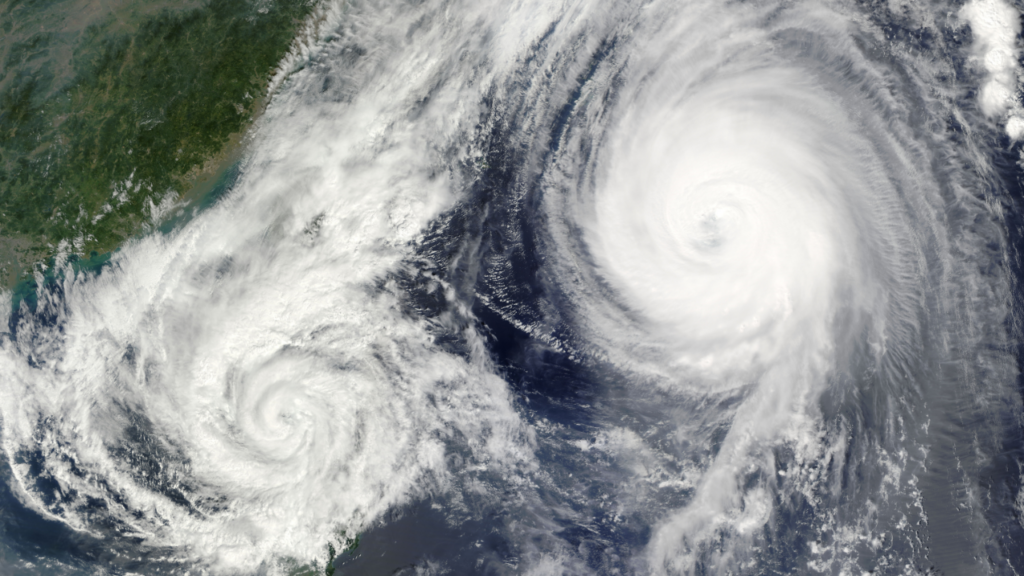The NHR PerfLab Seminars are a collaborative talk series held at the NHR@FAU evolving around performance engineering, code analysis, HPC computer architectures, and tools. The upcoming talk by our guest Prof. Dr. Thomas Ludwig takes place tomorrow and focuses on the fruitful connection between weather forecasts and machine learning.
Speaker: Prof. Dr. Thomas Ludwig, German Climate Computing Center (DKRZ)
Date and time: Tuesday, March 18, 2025, 2:00 p.m. CET (hybrid)
Location: RRZE (Martensstr. 1), seminar room 2.049 and online via Zoom.
Access via Zoom: https://go-nhr.de/perflab-seminar
Abstract:
Up to the 19th century, weather prediction was done with human intelligence by observation and qualitative considerations. With the collection of measurement data, prediction started to be based on quantitative data. First computed by humans, but quickly also by early computers. Over the decades, we see a considerable improvement in prediction quality; however, the task is very compute and data intensive. The advent of advanced machine learning methods together with huge volumes of observational data give rise to a new concept for computational weather predictions. The talk will present and discuss success stories and their implications onto HPC in the field of meteorology.
Short Bio:
Thomas Ludwig is a professor for High Performance Computing since 2009 at the Universität Hamburg. He is also the director of the German Climate Computing Centre (DKRZ) in Hamburg. His research focused on parallel storage system technology and development of tools for parallel systems. He was also active in the field of energy efficiency. Current scientific interests are in the area of reproducibility and application of AI/ML for computational climate science.
Thomas Ludwig held a professor position at Universität Heidelberg from 2001 to 2009. He received his doctoral degree and habilitation from Technische Universität München in 1992 and 1998, respectively. He studied computer science and philosophy at Friedrich-Alexander-Universität Erlangen-Nürnberg from 1980-1987. His diploma thesis was on adapting a computational fluid dynamics application to the DIRMU parallel computer.

The NHR PerfLab Seminars are a collaborative talk series held at the NHR@FAU evolving around performance engineering, code analysis, HPC computer architectures, and tools. The upcoming talk by our guest Prof. Dr. Thomas Ludwig takes place tomorrow and focuses on the fruitful connection between weather forecasts and machine learning.
Speaker: Prof. Dr. Thomas Ludwig, German Climate Computing Center (DKRZ)
Date and time: Tuesday, March 18, 2025, 2:00 p.m. CET (hybrid)
Location: RRZE (Martensstr. 1), seminar room 2.049 and online via Zoom.
Access via Zoom: https://go-nhr.de/perflab-seminar
Abstract:
Up to the 19th century, weather prediction was done with human intelligence by observation and qualitative considerations. With the collection of measurement data, prediction started to be based on quantitative data. First computed by humans, but quickly also by early computers. Over the decades, we see a considerable improvement in prediction quality; however, the task is very compute and data intensive. The advent of advanced machine learning methods together with huge volumes of observational data give rise to a new concept for computational weather predictions. The talk will present and discuss success stories and their implications onto HPC in the field of meteorology.
Short Bio:
Thomas Ludwig is a professor for High Performance Computing since 2009 at the Universität Hamburg. He is also the director of the German Climate Computing Centre (DKRZ) in Hamburg. His research focused on parallel storage system technology and development of tools for parallel systems. He was also active in the field of energy efficiency. Current scientific interests are in the area of reproducibility and application of AI/ML for computational climate science.
Thomas Ludwig held a professor position at Universität Heidelberg from 2001 to 2009. He received his doctoral degree and habilitation from Technische Universität München in 1992 and 1998, respectively. He studied computer science and philosophy at Friedrich-Alexander-Universität Erlangen-Nürnberg from 1980-1987. His diploma thesis was on adapting a computational fluid dynamics application to the DIRMU parallel computer.